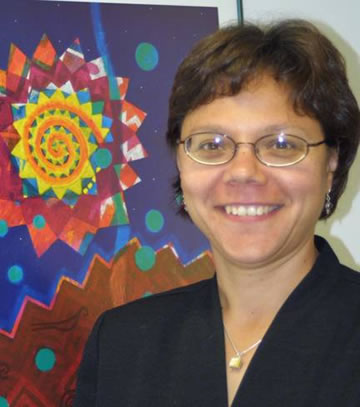 |
Canku Ota
|
 |
|
(Many Paths)
|
||
|
An Online Newsletter
Celebrating Native America
|
||
|
August
1, 2011 - Volume 9 Number 8
|
||
|
|
||
|
Native American
Students Explore Health Careers at UMD
|
||
|
by Samantha Mehrotra
WDIO
|
||
|
credits: photo courtesy
of CAIMH
|
| School's out for the summer, but not for this group of students.
They're participating in a camp organized by UMD's Medical School.
It's geared toward Native American students interested in medicine.
"We do cases in groups, and we diagnose patients and stuff like
that," says Christian Coffman, a senior at the Marshall School.
"We have science and math class where we learn about biology
and chemistry."
The 6 week program is meant for high-schoolers, but it's also designed for undergraduates who are passionate about science. "I'll tell you about my favorite part first," says Jessica Olive," a junior at the University of Wisconsin-Green Bay. "Anatomy is really awesome. We get to go down into the lab. We got to see a brain. We got to talk about brain awareness." The camp has been around for 5 years, pushing students like Christian and Jessica to go to college and pursue a degree. "When less than 50 percent graduate from high school and less than 30 percent get an advanced degree, and most of them are associate degrees--for a student to get a bachelor's degree makes a huge difference in the community no matter how it's used," says Dr. Joy Dorscher, with the Center of American Indian and Minority Health at UMD. Dorscher is an alumna of the camp herself and eventually became a doctor. After school, she came back home to serve her community. Now she hopes these students will do the same. "There are health needs in those communities," says Dorscher. "The people who are best suited to meeting those needs are the people who come from those communities." These students are committed to that goal. "You always have that dream of being a doctor one day," says Coffman. "I thought I'd try to shoot for it." "I grew up in Milwaukee and came from the under-represented background," says Olive. "I was thinking maybe I can't make it through college, maybe I can't do this. " But Jessica and her peers are now realizing they can. Camp has brought them one step closer to reaching their dreams of going into medicine. For more information:
A Message from the Director
Over the years I’ve discovered that there are many who
understand a portion of what we do at the Shortly after the launch of the Duluth School of Medicine in 1972, the dedicated faculty of the school understood the importance of reaching out to the tribal communities. Funded through the U.S. Department of Health and Human Services Health Careers Opportunities Program (HCOP), the School launched Native Americans into Medicine (NAM), an undergraduate summer enrichment program. The work of those early visionaries led to the development of the Center of American Indian and Minority Health in 1987. CAIMH programs are based on the Indian Health Pathway first developed in the early years. Since that time, we have incorporated an individualized, competency-based, student centered pathway with tribal and community connections. It features a five pronged approach to student and professional development and each of the five themes are represented in all stages of programming with emphasis, as appropriate, on the academic level and the individual’s needs:
This is the heart of the Indian Health Pathway at the Center
of American Indian and Minority Health. It reaches out to students as early as middle and high school and college undergraduates to encourage their desire and ability to stay in school, learn science and math, and continue to college and eventually medical school. It supports Native American medical students as they face the rigors of medical school on both the Duluth and Minneapolis campuses, and it supports Fellows in research service and training. In the upcoming years the Center of American Indian and Minority Health will continue to address its long held mission of education, research and service. I am pleased that the University of Minnesota is second in the nation in graduating Native American medical students. More than that, these graduates are able to retain cultural beliefs while gaining their education, through the community that has been developed within the medical school and the larger Native community. This is the most important part of our mission and the only part that will support and feed the other segments of the mission. This we will continue to do. Cordially, Joycelyn Dorscher, M.D. |
|
|
||
|
|
||
| Canku Ota is a free Newsletter celebrating Native America, its traditions and accomplishments . We do not provide subscriber or visitor names to anyone. Some articles presented in Canku Ota may contain copyright material. We have received appropriate permissions for republishing any articles. Material appearing here is distributed without profit or monetary gain to those who have expressed an interest. This is in accordance with Title 17 U.S.C. Section 107. | ||
|
Canku Ota is a copyright ©
2000, 2001, 2002, 2003, 2004, 2005, 2006, 2007, 2008, 2009, 2010,
2011 of Vicki Barry and Paul Barry.
|
||
 |
 |
|
|
The "Canku
Ota - A Newsletter Celebrating Native America" web site and
its design is the
|
||
|
Copyright ©
1999, 2000, 2001, 2002, 2003, 2004, 2005,
2006, 2007, 2008, 2009, 2010, 2011
of Paul C. Barry.
|
||
|
All Rights Reserved.
|
||
 Boozhoo
and welcome to the Center of American Indian and Minority Health
(CAIMH)!
Boozhoo
and welcome to the Center of American Indian and Minority Health
(CAIMH)!